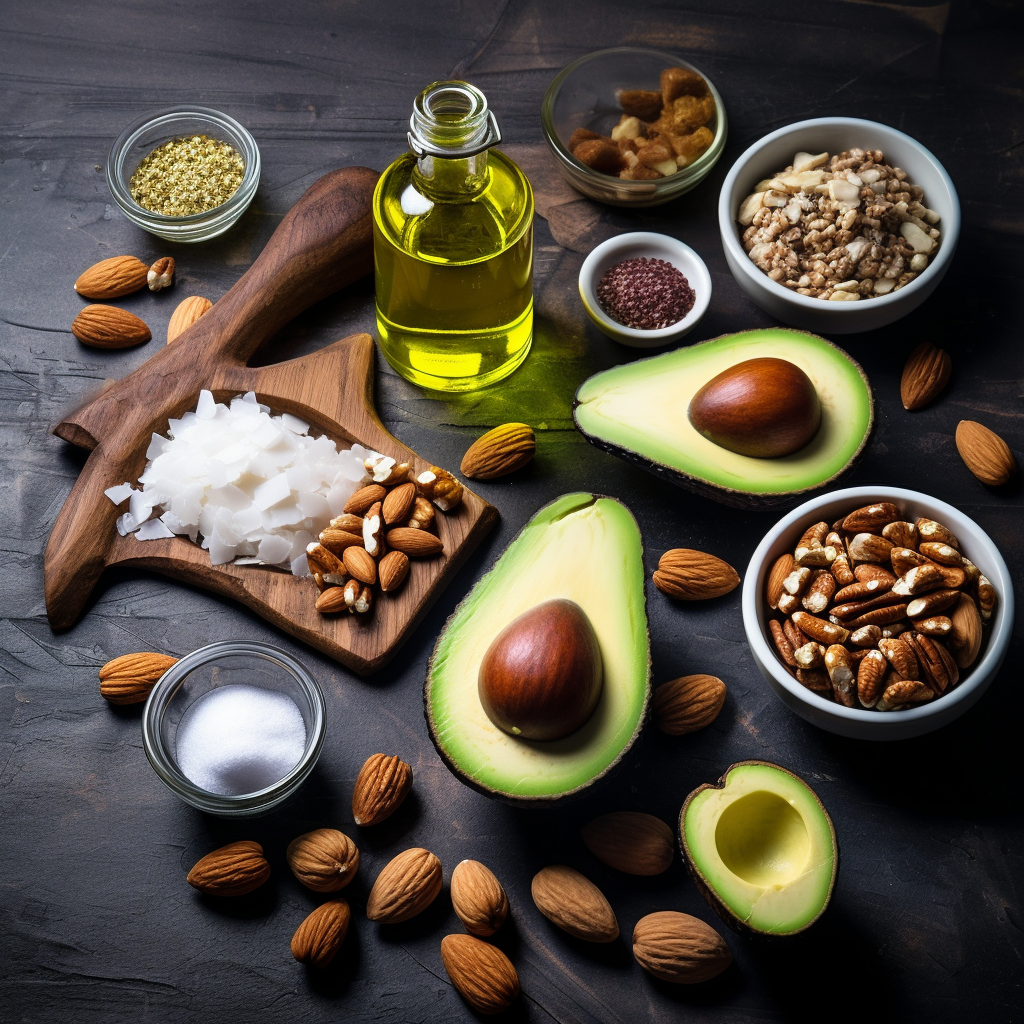Derived from the Greek word ‘hormaein’, which means “to excite”, hormesis is a biological phenomenon where a minor dose of stress leads to beneficial effects on the organism.
Think of it like vaccinating the body: a small exposure to a virus can strengthen the immune system against future attacks.
Similarly, in the realm of mental health, brief and controlled stressors can fortify our psychological resilience. The potential benefits of hormesis for mental health are now gaining traction, offering exciting possibilities for holistic wellness.
Individualized Hormesis: The Future of Personalized Wellness

As the science behind hormesis deepens, a new frontier is emerging that melds technology with this ancient understanding. With wearable monitoring devices like Whoop and Oura, we can now gather continuous biometric data.
These devices could potentially enable us to pinpoint optimal exposure levels to various stressors on an individual basis. By analyzing heart rate variability, sleep patterns, and other critical metrics, we can tailor the hormetic interventions to each person’s unique physiology, optimizing the benefits and minimizing potential risks.
This blend of technology and ancient wisdom could revolutionize the way we approach mental health and overall well-being.
The Paradoxical Power of Stress

Stress often conjures images of burnout and health decline. Chronic stress indeed correlates with numerous ailments, from heart complications to mental health disorders. Yet, hormesis flips this narrative, suggesting that controlled, brief exposure to stress can enhance our mental and physiological systems.
Think of this as resistance training for our brains: the same way weights strengthen muscles, specific stressors can augment our mental fortitude.
Integrating Hormesis: Strategies for a Robust Mind
Harnessing hormesis for mental wellness can be achieved through various avenues:
Cold and Heat Exposure

Hormesis, as we’ve touched on, is the beneficial response of organisms to a low-dose stressor. Cold and heat exposure are classic examples of such hormetic stressors. When we expose our bodies to these thermal challenges, we’re essentially introducing a short-term, controlled stress that, over time and with repetition, stimulates a range of adaptive biological responses.
Cold Exposure

My personal tryst with cold exposure began innocuously with a Wim Hof video by Yes Theory. The initial attempts were daunting, but over time, my tolerance expanded from mere seconds to a regular 3-minute routine. These moments, starting with warmth and ending with invigorating cold, have become a cherished ritual.
From a scientific perspective, when the body is exposed to cold, it undergoes several adaptive processes:
- Thermogenesis: The body ramps up its metabolic rate to produce heat. Brown adipose tissue (BAT), often referred to as “brown fat”, is activated during this process. Unlike regular fat which stores energy, brown fat burns energy, thereby increasing calorie expenditure.
- Release of Norepinephrine: Cold exposure can lead to the release of norepinephrine in the brain, a neurotransmitter that plays a role in focus, attention, and mood regulation.
- Vasoconstriction and Vasodilation: The blood vessels contract to conserve heat (vasoconstriction) and then expand (vasodilation) once you warm up again. This acts as a natural workout for your blood vessels, promoting cardiovascular health.
Heat Exposure

Beyond the cold, heat exposure, like saunas, has its unique set of benefits. Immersing oneself in hot environments induces a kind of “heat shock” to the body.
- Heat Shock Proteins (HSPs): When exposed to heat, our bodies produce heat shock proteins, which repair damaged proteins and protect against cellular stress. This can help improve longevity and overall cellular health.
- Detoxification: Sweating in saunas aids in expelling toxins from the body.
- Improved Blood Flow: The heat induces vasodilation, increasing blood flow to muscles and organs, aiding in recovery and nutrient delivery.
Both cold and heat exposures challenge our body’s homeostatic mechanisms – the systems that keep our internal environment stable.
By regularly pushing these boundaries in a controlled manner, we stimulate our body’s adaptive responses, thereby bolstering resilience, enhancing mood, and potentially amplifying brain functionality.
This dance between extremes, if performed with care and understanding, can become a potent tool in our arsenal for holistic health.
Physical Exercise

Just as our muscles grow stronger and more resilient with each workout, so does our brain.
Engaging in regular physical activity—whether it’s endurance training, high-intensity workouts, or even leisurely walks—triggers a release of neurochemicals that elevate our mood, sharpen our memory, and stimulate the growth of new brain cells.
But beyond these chemical changes, there’s an underappreciated psychological dimension to exercise. The journey through pain during intense workouts, the experience of boredom in a prolonged, steady activity like a zone 2 bike ride, and the persistence in the face of delayed gratification all foster a mental toughness.
By consistently confronting and embracing these challenges, we not only build physical stamina but also cultivate a mental resilience that could serve as a protective factor against certain psychopathologies.
Embracing the full spectrum of experiences that come with exercise, from the euphoric to the mundane, can be a holistic approach to mental well-being.
Nutrition
The food we consume and when we consume it can exert profound impacts on our physiology. Hormetic principles apply here too: certain dietary patterns introduce mild stressors that activate our body’s adaptive processes.
Intermittent Fasting

This eating pattern, where one cycles between periods of eating and fasting, challenges the metabolic status quo. During fasting, cells initiate a process called autophagy, a cellular “clean-up” mechanism that removes damaged components. This boosts cellular repair and regeneration. Additionally, fasting can increase the production of brain-derived neurotrophic factor (BDNF), a protein that supports neuron health and cognitive function.
Caloric Restriction

Consuming fewer calories without malnutrition has been linked to longevity in numerous organisms. This mild stressor activates pathways that improve cellular resilience and metabolic efficiency.
Ketogenic Diets

By shifting the body’s primary fuel source from glucose to ketones, a ketogenic diet poses a metabolic challenge. Ketones, especially beta-hydroxybutyrate, have neuroprotective qualities and may enhance brain health and cognitive function.
Polyphenols and Antioxidants

Found in foods like berries, green tea, and dark chocolate, these compounds can introduce mild oxidative stress. In response, our cells ramp up their endogenous antioxidant defenses, bolstering overall resilience.
By mindfully manipulating our dietary patterns and choices, we can leverage hormesis to optimize brain health, metabolic function, and overall resilience.
Cognitive Endeavors
Akin to muscles that grow stronger with resistance training, our brain’s capacity expands when challenged.
Skill Acquisition

Learning a new musical instrument, a new language, or even a new dance form requires cognitive flexibility. The process of learning and mastering these skills enhances synaptic plasticity, the brain’s ability to rewire and adapt.
Puzzles and Strategy Games

Engaging in mentally stimulating games like chess, Sudoku, or even modern digital strategy games, pushes our cognitive boundaries. This not only sharpens problem-solving skills but also boosts memory and attention span.
Mental Imagery and Visualization

Athletes often visualize their performances, a practice that activates neural circuits involved in the actual physical act. This cognitive exercise can enhance performance, improve focus, and even increase motivation.
Reading and Continuous Education

Diving deep into books, especially complex literature or academic texts, forces our brains to process, analyze, and synthesize vast amounts of information. Lifelong learning, whether through formal education or self-study, keeps the brain active and agile.
Just as we prioritize physical fitness, maintaining cognitive fitness is crucial. Regularly challenging our brains with varied tasks can pave the way for enhanced cognitive capabilities, a sharper memory, and even a buffer against age-related cognitive decline.
Maximizing Mental Health: The Rewards of Controlled Challenges
When we intentionally embrace controlled challenges, the brain responds with remarkable adaptability. This isn’t merely about thriving in adversity but rather sculpting the mind to be more resilient, agile, and harmonious. Here’s a snapshot of the tangible benefits that emerge from this approach:
- Cognitive Enhancement: The rigors of hormetic practices can sharpen the mind, leading to improved attention, faster problem-solving, and enhanced memory retention.
- Fortified Mental Resilience: By consistently navigating through these challenges, our psychological defenses are bolstered, making us less susceptible to stress, anxiety, and other mental health setbacks.
- Elevated Emotional Well-being: Controlled stressors, paradoxically, can lead to a more balanced emotional state, uplifting our mood and fostering a more positive outlook on life.
- Boosted Neuroplasticity: The brain’s remarkable ability to rewire and adapt—known as neuroplasticity—gets a significant boost, enabling us to learn new skills, adapt to changing circumstances, and recover from injuries with greater ease.
Embracing controlled challenges thus becomes a journey of mental empowerment, positioning us to navigate the complexities of life with grace, agility, and resilience.
Proceed with Prudence
The allure of hormesis is undeniable, yet it’s paramount to tread carefully. An activity that rejuvenates one might overwhelm another. Prioritize personal awareness, and seek professional guidance when venturing into new wellness routines.
In Conclusion

Hormesis bridges ancestral insights with cutting-edge science, offering a fresh paradigm for mental well-being. By recognizing and harnessing its potential, and with the aid of modern technology, we may find novel avenues to elevate cognitive prowess, resilience, and holistic health in a highly individualized manner.



